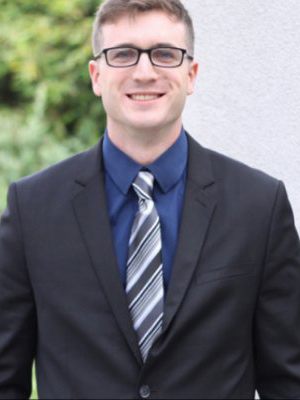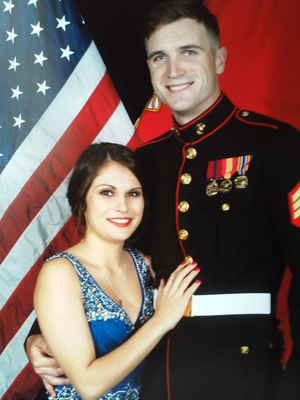Marine sergeant keeps options open, lands at Microsoft
Former Marine Sgt. William Malone says the key to a successful transition out of the military is to begin planning early and keep your options open. And he should know — it’s been less than three months since he completed his service and began working as a software engineer for Cloud Services at Microsoft.
“I was definitely nervous about transitioning,” Malone says. “I was exploring three main options: re-enlist, go back to school, or find a job in the private sector. I had plans A–Z and then some, and that was key.”
Malone says he knew he wanted to pursue a career in software engineering, so he was looking into computer science courses he could take once he was out of the military. That’s when he heard about Microsoft Software & Systems Academy (MSSA). During a military-sponsored transition readiness seminar, Malone saw a slide in a presentation that mentioned MSSA, an intensive 18-week course that provides active duty U.S. service members with the career skills necessary to meet the IT industry’s high demand for talent. He looked into the program and decided it sounded like a good match for his future plans.

That’s where planning early can be a benefit to transitioning service members, Malone says. “If I had not begun planning a year before my transition date, I wouldn’t have been able to attend MSSA. So, start at least a year out,” he says. And for him, that planning paid off — his experience with MSSA was invaluable.
“The most useful three to four weeks of my life were the first three to four weeks of MSSA,” Malone says. “That really set the tone for what I wanted to learn and how I learned it. I’d done research in the past; tried to learn coding on my own, but that core foundation was missing, so every time I’d try to attempt something, it was just a journey down the rabbit hole.”
That core foundation is serving him well in his role at Microsoft, he says. But, more than that, the intangible skills he gained during his service are what helped him prove he’d be a good fit for Microsoft’s culture.
“Microsoft’s culture is in a huge shift right now, so they were checking to see if I had a growth mindset: learning from experiences, learning from failures and being able to accept and embrace that,” Malone says. “The Marine Corps does a pretty good job of fostering the growth mindset by teaching people to learn from failures, to keep on adapting and moving: What you’ve done right or wrong, how you can adjust, where you should go from there.”
The skills he learned in MSSA and that growth mindset may be what got him in the door, but, Malone says, it’s just one of the skills the military teaches you that apply to the corporate world as well.

“I’ve met a few other MSSA graduates working at Microsoft, and they say they have a different perspective than some of their teammates,” he says. “They’ve been able to contribute to their teams’ success because of that from month one. To look at processes and ways Microsoft does things and say, ‘Hey, why not do it this way?’ And they were able to get things changed for the better.”
It’s those perspectives that make former service members such valuable employees, Malone says. And he says MSSA is a very smart way for Microsoft to take advantage of that value and to give transitioning service members valuable skills in their new careers.
“Microsoft putting the time into developing the veteran community opens up a whole new pool of talent, a whole different perspective, a whole different experience you’re going to get from someone,” he says. “Be it sales, be it software engineering, be it HR, the military brings a very different approach.”
